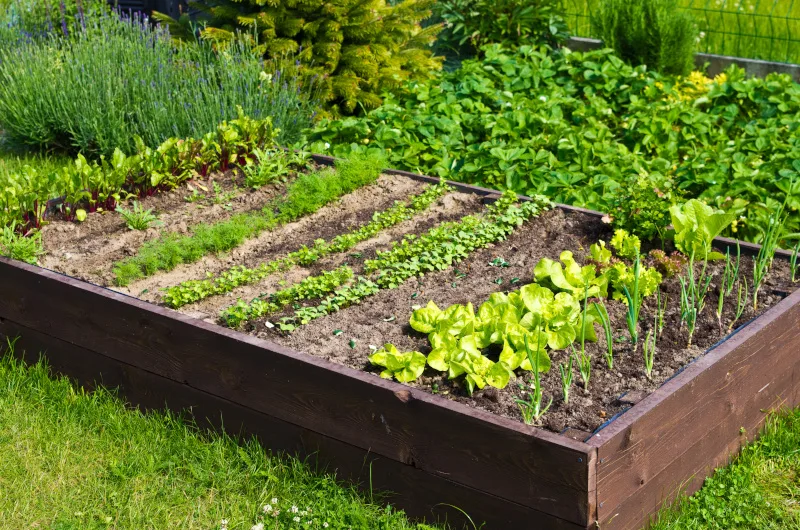Why Grow Your Own Vegetables?
Freshness and Flavour:
It’s a sad fact of life, but all too many people are unaware of how much better fresh food tastes. A lot of crops start to lose flavour quickly after harvesting, and mass produced foods are often forced to grow faster than they would naturally, reducing flavour levels. Homegrown vegetables offer unparalleled freshness and superior taste compared to store-bought produce. Growing your own also means you can experience different ways of eating foods – such as raw peas straight from the pod, or gently sun warmed strawberries, which boast an unbeatable taste and sweetness. Even the humble spud is elevated to a whole different level when harvested as a new potato in early summer, cooked with fresh mint and served alongside freshly harvested asparagus.
Nutritional Value:
Homegrown vegetables are packed with essential nutrients and can be grown without chemical pesticides and fertilisers, enhancing their nutritional value. Commercial farm fields sufer from soil depletion, which can reduce the nutritional value of the crops grown. This is difficult to correct and farmers tend to resort to chemical fertilisers, which contain a narrow range of nutrients. Home garden or allotment plots tend to suffer less from depletion and it’s far easier to keep the soil in prime condition due to the relatively small area. Muching with compost or manure adds a wider range of nutrients to the soil, producing more nutritious crops.
Cost Savings:
Growing your own vegetables reduces the ongoing expense of purchasing produce and allows you to grow expensive or rare varieties, maximizing savings. The canny gardener can also squeeze maximum value from their plot by buying seeds at the right time of year (seedsmen tend to discount their ranges in late summer to keep stock turnover and germination rates high) and then saving seeds from their own crops for sowing in following years.
Environmental Impact:
Home vegetable gardens promote sustainability by reducing reliance on industrial farming practices and encouraging organic gardening methods. Climate change is a controversial topic, but there’s no avoiding the fact that we humans are having too great an impact on the environment and are depleting natural resources at an excessive rate. Check the shelves of any supermarket and you’ll see vegetables that have been shipped riduculous distances, such as asparagus imported from South America. Compare and contrast the carbon footprint of these foods with a crop grown in your back garden and it’s apparent just how wasteful we’ve become. If everyone in the UK grew just a few crops a year, the reduction in resource wastage would be huge.
Physical Activity and Stress Relief:
Gardening provides exercise, stress relief, and the opportunity to spend time outdoors in nature. Medical practitioners are increasingly recommending mindfulness as an aide to mental health and wellbeing. Spend a few hours sowing seeds, thinning seedlings, or weeding and you’ll quickly realise that this achieves the exact same mental state. Spend some time digging, cutting grass, or spreading manure and you’ll quickly realise just how much of a workout gardening can give the body.
Educational Opportunities:
Growing vegetables offers hands-on learning experiences about plant life cycles, soil health, and sustainable practices. My first foray into gardening was planting leeks alongside my grandfather whilst not much more than a toddler. Those formative years gave me a lifelong interest in plants and the natural environment. Introducing children to gardening at a young age also means they’re likely to take a stronger interest in the environment around them, helping to shape a more positive future. Kids introduced to growing in urban environments also tend to gain a more positive outlook and are less likely to lapse into petty crime or vandalism.
Sense of Achievement and Connection:
Successfully growing your own vegetables brings a sense of accomplishment and can foster community connections through sharing produce and family activities.



